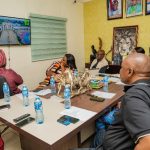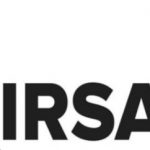By Dr. Allan Pamba, Executive Vice President, Diagnostics, Africa, at Roche Diagnostics
Did you know there’s up to a one-in-four chance that you might be infected with tuberculosis (TB) bacteria? Fortunately, most people with latent TB won’t develop the active disease—but HIV co-infection increases that risk 20 to 30 times. TB spreads through the air when someone with active TB in the lungs or throat coughs, sneezes, talks, or sings, releasing infectious germs others can breathe in.
Active TB is deadly, primarily affecting adults in their most economically productive years. Over one million people lost their lives to TB last year, according to the World Health Organization (WHO). This number is expected to rise as public health systems grapple with reduced funding, threatening progress in TB treatment and control. But here’s the hopeful part: TB is preventable, treatable, and curable—especially when diagnosed early.
As we observe World TB Day this year, it’s clear that Africa faces unique challenges. Gains made over the past two decades are being undermined by funding cuts that disrupt prevention, screening, and treatment. The WHO has sounded the alarm, urging collective action—from governments to civil society and the private sector—to maintain momentum and reach every person in need of quality TB services.
However, beyond the uncertainty of external aid lies a deeper concern: domestic underinvestment, particularly in early diagnosis. Without adequate testing, we cannot treat the disease effectively.
Diagnose Early, Treat Early, Save More
Investing in diagnostic services has proven to deliver exceptional value in Africa. Early detection reduces hospitalizations, transmission rates, and long-term treatment costs.
In South Africa, a 10-year study (2013–2022) on molecular diagnostics showed high returns on investment (ROI), especially in TB diagnostics:
- TB testing: ROI of 19.0—every dollar spent generated $19 in health and economic returns.
- HIV viral load testing: ROI of 1.4.
- Early infant HIV diagnosis: ROI of 64.8.
- COVID-19 testing: ROI of 2.5.
Building Resilient Systems from Within
Africa’s healthcare systems have long depended on external support, but global funding priorities are changing. It’s time for Africa to proactively shift course. Economically strong nations invest in their own health infrastructure. Expanding domestic funding, particularly in diagnostics, not only strengthens disease response but also builds long-term resilience.
Given limited domestic budgets, strategic allocation is essential. Early diagnosis leads to early treatment, which lowers overall healthcare costs. Countries that prioritize diagnostics in their health budgets can deliver more care without increasing spending.
Smarter Testing Through Integration
Many African countries already have diagnostic platforms designed for HIV testing that can also detect other diseases. However, siloed funding models have led to parallel testing systems—multiple machines performing similar functions—which increases costs and delays results.
The smarter alternative? Integrated diagnostics. A single platform performing multiple tests. The WHO advocates for this approach, highlighting how integrated diagnostics strengthen healthcare delivery and outcomes.
Strategic Partnerships Make the Difference
Collaborations between governments and industry are key to expanding diagnostic capacity. By embracing cost-saving innovations like multi-disease testing and investing in healthcare workforce development, we can accelerate accurate, timely care. Integrated systems that function efficiently and sustainably don’t just control TB—they uplift entire health ecosystems.
A Future We Can Redefine
TB has lingered in Africa’s story for too long, but this story can be rewritten. The tools to beat TB exist—what’s needed is the will to use them. Better access to diagnostics, smarter investments, and strong partnerships can transform the continent’s health future.
Africa funding its own healthcare systems, choosing effective solutions, and committing to resilient systems is no longer a dream—it’s an achievable vision. The path is clear. It’s time to take the steps forward.
Ends
On behalf of Roche
For Media Information:
Telephone:
E-mail:


















